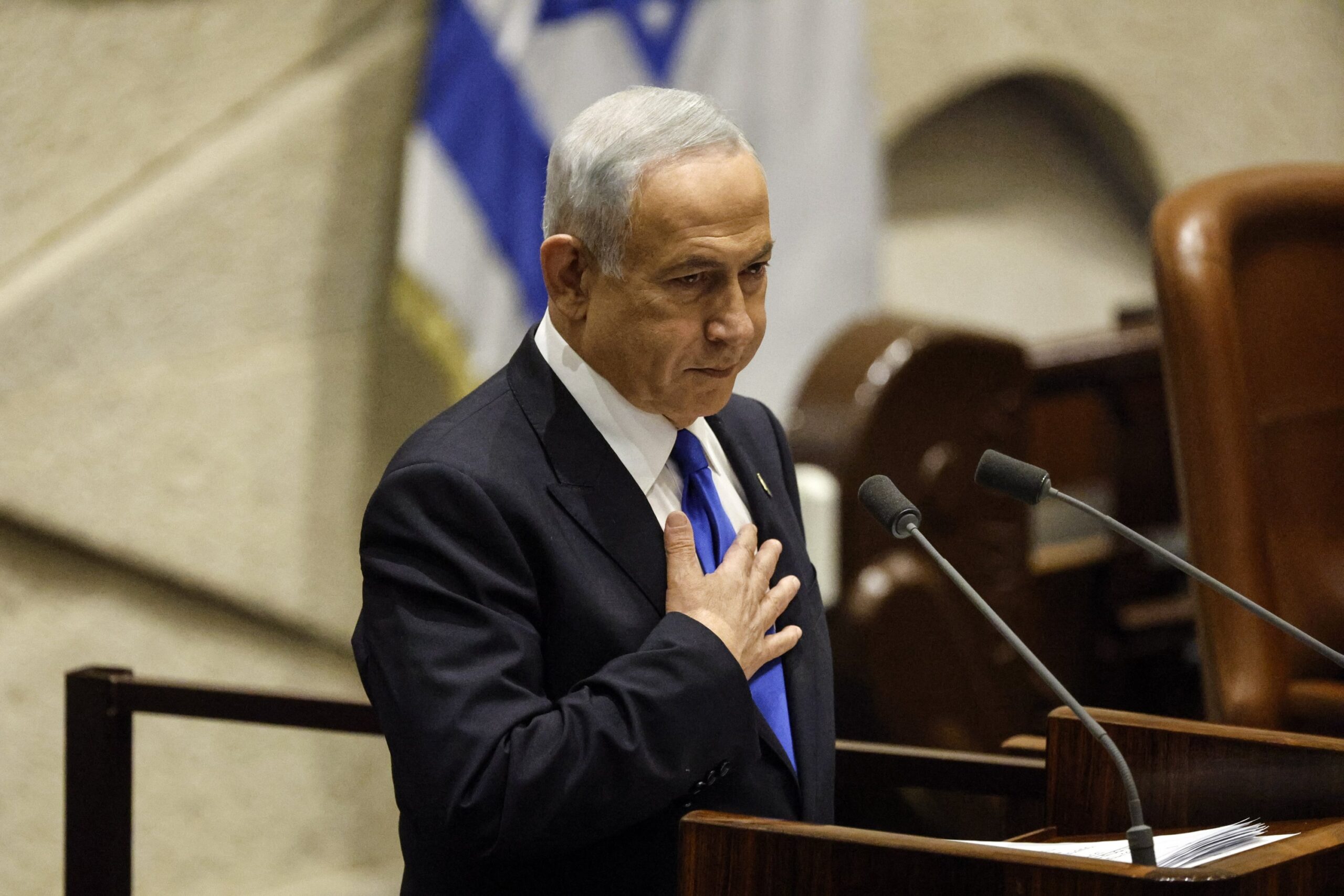

Isreali PM
Benjamin Netanyahu, the Israeli prime minister, denied the charges against him in a historic corruption trial when he appeared in court on Tuesday.
He is the first sitting prime minister in Israel’s history to face criminal charges, including bribery, fraud, and breach of public trust, across three separate cases.
Netanyahu’s court appearance follows years of legal battles and delays, during which he repeatedly sought to postpone proceedings. The trial, which began in May 2020, has been described as a defining moment for Israeli democracy.
At the hearing, Netanyahu defended himself against allegations and testimonies from former close associates, reiterating his claim that the cases are part of a “relentless witch hunt.”
Outside the courthouse, supporters chanted in his favor, while protesters called for his imprisonment.
“If I tell you it’s a drop in the sea, that would be an exaggeration.
“I’m busy with matters of world importance,” Netanyahu stated.
The first case alleges that Netanyahu and his wife, Sara, accepted over $260,000 worth of luxury gifts, including cigars, champagne, and jewelry, from billionaires such as Hollywood producer Arnon Milchan and Australian businessman James Packer in exchange for political favors.
In the other two cases, Netanyahu is accused of seeking favorable media coverage. One involves alleged negotiations with Arnon Mozes, the publisher of Yedioth Ahronoth, to undermine a rival newspaper.
The other alleges he provided regulatory benefits to Shaul Elovitch, owner of the Walla News website, in exchange for positive coverage.
Netanyahu has denied all charges, maintaining that the accusations are baseless and politically motivated.
The trial has deepened divisions in Israeli society. Critics argue that Netanyahu’s legal troubles reflect broader concerns about corruption in government, while his supporters see him as a victim of judicial overreach.
Yohanan Plesner, president of the Israel Democracy Institute, called the trial an “important milestone,” pointing out Netanyahu’s dual roles as prime minister and criminal defendant.
The ongoing proceedings, he said, pose a “direct confrontation” with key state institutions, particularly the judiciary.
The trial’s schedule has been adjusted due to Netanyahu’s responsibilities, with hearings reduced to two days a week to accommodate his workload amid regional security challenges.
While other Israeli leaders, including former Prime Minister Ehud Olmert, have faced criminal convictions, Netanyahu’s case marks the first time a sitting prime minister has taken the stand.
His legal troubles coincide with his government’s controversial push to weaken judicial powers, sparking mass protests across the country.
Netanyahu’s critics claim he has used conflicts in Gaza and Lebanon to delay justice. However, the prosecution argues that it is in the public’s interest for the trial to conclude swiftly.
In an inspiring act of philanthropy, the Don Lulu Foundation, led by renowned humanitarian and…
The trial of the detained leader of the Indigenous People of Biafra (IPOB), Mazi Nnamdi…
The ongoing trial of the leader of the Indigenous People of Biafra (IPOB), Mazi Nnamdi…
Dangote Packaging Limited (DPL) is set to expand its footprint across Africa as the company…
The Kano State Government has disclosed that it inherited water works worth millions of naira…
U.S. President Donald Trump on Tuesday expressed concern over rising tensions between India and Pakistan,…